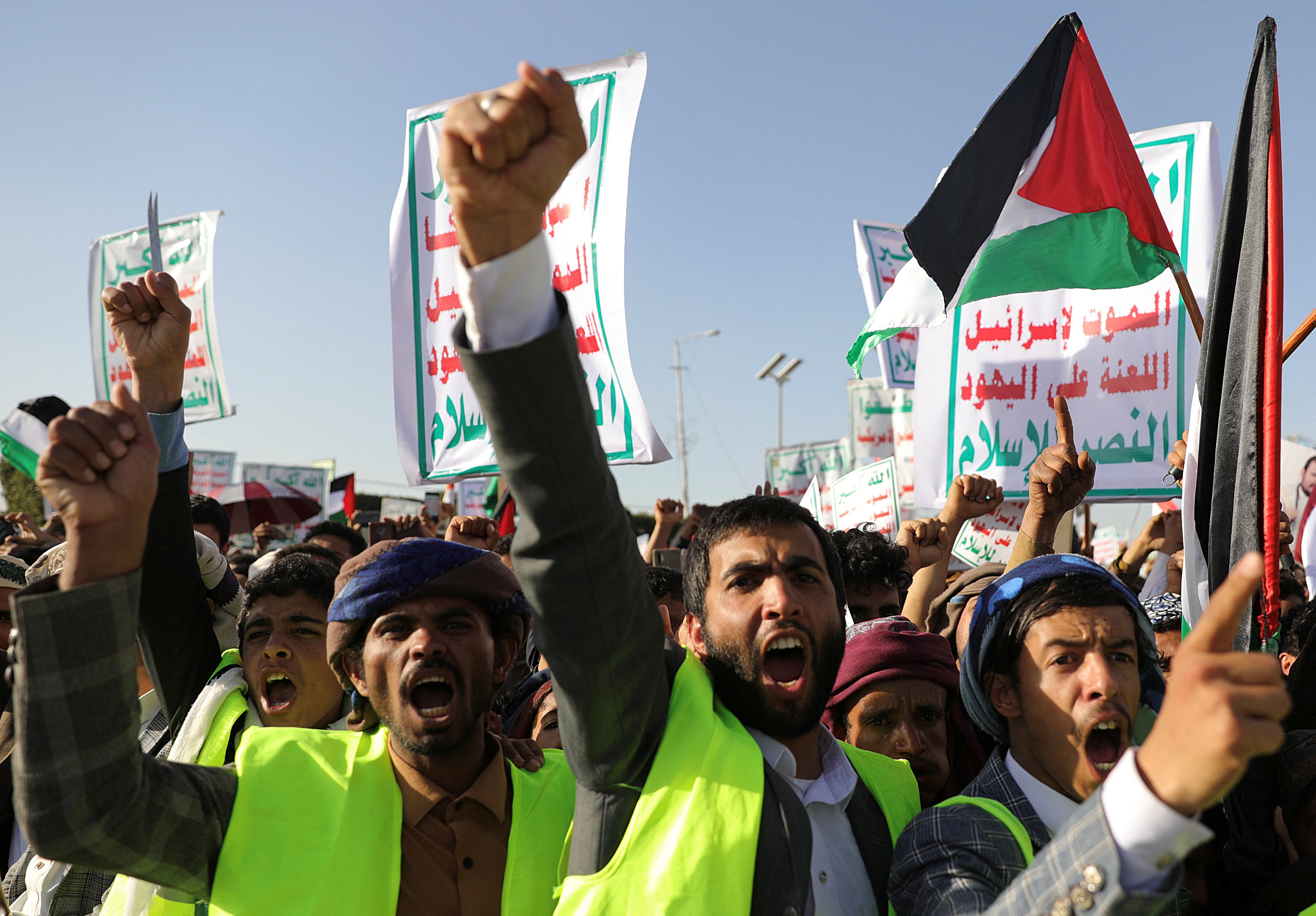Targeted strikes against Houthi rebels are moral and justified
Editorial: Support for free flow of trade in international waters should not be confused with views on Gaza

The conflict between Israel and Hamas in Gaza is serious enough, but one of the great concerns about it is that it will escalate into a regional war by drawing in Iranian proxies, such as Hezbollah in Lebanon and the Houthis in Yemen, and possibly Iran itself.
For that reason, the United States and British airstrikes against the Houthis on Thursday and Friday nights were alarming. However, it is the Houthis, who call themselves Ansar Allah, Partisans of God, who are seeking to extend the conflict, not the US-led coalition.
The leaders of the international community cannot afford to ignore the Houthi attacks on Red Sea shipping. Which is why The Independent supports the limited and targeted airstrikes aimed at disabling Houthi infrastructure for launching missiles and drones at civilian ships.
We commend president Joe Biden and prime minister Rishi Sunak for taking this action, which is supported by many other nations even if they did not take part in the military operation. We should be proud that the UK has the capability to do so, and that it can still act as a force for good in the world. Whatever the controversies that have attended the use of British military force abroad in recent years, protecting international shipping ought to command wide support.
Thus we also praise Sir Keir Starmer for his responsible position, supporting the government in the national interest. He has dropped any hint of his predecessor’s squeamishness about the use of force when justified. Writing in The Independent, Sir Keir said: “Those who seek to damage Britain, to attack its interests and to threaten its people should be in no doubt as to the seriousness of our country’s resolve in response to their aggression.”
Those are welcome words. It is vital that free democracies stand firm against terrorism on the high seas. If we cannot have free passage by rail, sea and air then the world becomes a smaller place. Those nations that have the means to protect the free flow of international trade have the responsibility to use them. Sometimes the use of force is moral and right.
There will be some MPs, however, who will criticise the cabinet’s decision when Mr Sunak makes a statement in the House of Commons on Monday. They will warn that Western intervention risks escalating the conflict in the Middle East. It must be pointed out to them that it is the Houthis who want to widen the war. It is the Houthis who are trying to attack Israel, using international shipping as the only target within range, in order to show their solidarity with Hamas.
They must not be allowed to do so, which is why the limited and targeted response to their attacks is intended to de-escalate the conflict rather than the opposite.
It is encouraging, therefore, that Sir Keir sees clearly where the threat of escalation comes from: “The Iranian regime continues to play a destabilising role in the region as a sponsor for terror.” Fortunately, it seems that Tehran is reluctant, so far, to encourage its allies to widen the conflict.
Nevertheless there is a danger, judging from some of the banners at Saturday’s pro-Palestinian march in London, that Israeli military action against Hamas and US-British action against the Houthis are seen as two theatres of the same conflict. The Houthis, with their antisemitic ideology, would want the world to see them that way. But no one with the best interests of the Palestinian people at heart should allow such twisted propaganda to take hold.
Support for free flow of trade in international waters should not be confused with views on how best to secure a just future for the Palestinians.



Join our commenting forum
Join thought-provoking conversations, follow other Independent readers and see their replies
33Comments